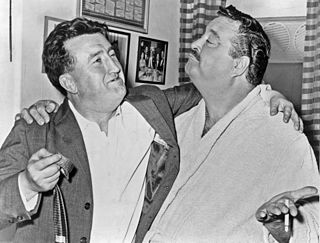A Quote by John Berger
What any true painting touches is an absence - an absence of which without the painting, we might be unaware. And that would be our loss.
Related Quotes
There is no such thing as experience here. You seem to know, you imagine. Imagination must come to an end...I don't know how to put it. The absence of imagination, the absence of will, the absence of effort, the absence of all movement in any direction, on any level, in any dimension - THAT is the thing. That is a thing that cannot be experienced at all. It is not an experience.
Personally I would like to have pupils, a studio, pass on my love to them, work with them, without teaching them anything.. ..A convent, a monastery, a phalanstery of painting where one could train together.. ..but no programme, no instruction in painting.. ..drawing is still alright, it doesn't count, but painting - the way to learn is to look at the masters, above all at nature, and to watch other people painting.
Painting is an illusion, a piece of magic, so what you see is not what you see. I don't know what a painting is; who knows what sets off even the desire to paint? It might be things, thoughts, a memory, sensations, which have nothing to do directly with painting itself. They can come from anything and anywhere.
To me, grey is the welcome and only possible equivalent for indifference, noncommitment, absence of opinion, absence of shape. But grey, like formlessness and the rest, can be real only as an idea, and so all I can do is create a colour nuance that means grey but is not it. The painting is then a mixture of grey as a fiction and grey as a visible, designated area of colour.
That's the thing I want to make clear about depression: It's got nothing at all to do with life. In the course of life, there is sadness and pain and sorrow, all of which, in their right time and season, are normal-unpleasant, but normal. Depression is an altogether different zone because it involves a complete absence: absence of affect, absence of feeling, absence of response, absence of interest. The pain you feel in the course of a major clinical depression is an attempt on nature's part (nature, after all, abhors a vacuum) to fill up the empty space.





































